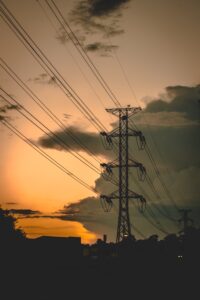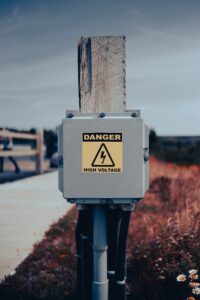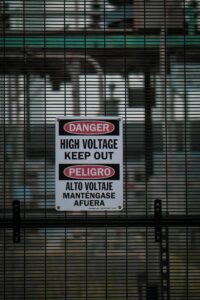Navigating the Frontier of Electrical Engineering: Addressing Modern Challenges and Beyond"
An electrical engineer is a skilled professional who designs, develops, and maintains electrical systems and components. They apply principles of mathematics and physics to create innovative solutions for a wide range of applications, from power generation and distribution to electronic circuits and telecommunications. Their expertise is crucial in industries like electronics, power generation, telecommunications, and automation. Electrical engineers also play a vital role in renewable energy technologies, advancing sustainability efforts. Their work ensures safe and efficient electrical infrastructure, driving progress in an increasingly electrified world. With a blend of technical prowess and creativity, they are instrumental in shaping the future of technology and industry.

Hazards and risk in Electrical System
-
Electric Shock: Contact with live electrical parts can lead to electric shock, which can cause injuries ranging from mild discomfort to fatal electrocution.
-
Arc Flash: A sudden release of electrical energy can cause an explosive discharge, resulting in intense heat, light, and pressure waves. This can lead to severe burns and injuries.
-
Arc Blast: The explosive force of an arc flash can propel objects, causing physical harm and damage to surroundings.
-
Fire: Overloaded circuits, short circuits, or faulty wiring can generate excessive heat, potentially igniting flammable materials and causing fires.
-
Explosion: In certain environments, like industrial plants, electrical equipment failures can trigger explosions, especially in the presence of combustible gases or dust.
-
Electromagnetic Interference (EMI): Electrical systems can emit electromagnetic radiation, interfering with nearby electronic devices or sensitive equipment.
-
Voltage Surges and Transients: Sudden increases in voltage can damage connected devices and systems.
-
Poor Power Quality: Fluctuations in voltage levels, frequency variations, and harmonic distortions can disrupt sensitive equipment and lead to inefficiencies.

10 electrical safety rules at home
1 Avoid Overloading Outlets
2 Avoid Overloading Outlets
3 Water and Electricity Don’t Mix
4 Install Ground Fault Circuit Interrupters
5 Properly Store Flammable Materials
6 Don’t Yank Cords
7 Cover Unused Outlets
8 Regular Inspections
9 Hire a qualified electrician for installations and repairs
10 Know the location of your circuit breakers and how to shut off power in an emergency.


